Taking the message of open education to the mainstream
Why is this important?
Ten years ago, the Cape Town Declaration laid out a compelling vision for a world of open, flexible, and effective education that has inspired thousands of educators, learners, advocates, and policymakers across the globe. Yet, after a decade of passionate advocacy, the need for broader awareness of open education persists. The challenge is not in reaching enough people, but rather in articulating the meaning and value of open education in a way that resonates with mainstream audiences in the same way that the Cape Town Declaration resonates with us. For the open education movement to rise to the next level, we need to take our message to the mainstream and explain why open should matter to them. In short, we need to become better communicators.
What is the opportunity?
While communications vary widely across contexts, cultures, and languages, there are some common needs across the open education community.
Globally, we need to work together to ensure a common understanding for the term “open” in the context of education, and communicate how it differs from related concepts such as free, digital, or online. Open means unlocking all that is possible with education in this increasingly digital, internet-connected world by empowering everyone to freely use, edit, and share—anytime, anywhere, in any format.
Locally, advocates need to develop messages that communicate the meaning and value of open to their community. Open is more than just a set of attributes to apply to content, it is a set of practices and values that achieve important, real-world benefits for teachers and learners. Different messages will appeal to different audiences. American students may care about open education as a means to save money, a German school as a means to catalyze collaboration and innovation, or Indonesian policymakers as a means to expand locally relevant educational opportunities to remote populations. Open is not the goal, it is the means to achieving more important goals.
How can you get involved?
- Add—and use—compelling human stories about the impact of open education through the OER World Map. Showcase these stories in your blog posts, articles, reports, and other media.
- Make an effort to step outside the siloed conversations within the open education community, and bring the message of open education to mainstream audiences. Consider presenting at conferences focused on general education and technology issues, writing for the newsletters of industry associations, reaching out to scholarly societies, and working with organizations that support underserved populations.
- Educate news outlets that write about education in your country about open education and what it means. Encourage them to highlight open education success stories as examples of mainstream concepts that the news often covers, such as distance learning, technology in the classroom, and making education more accessible and affordable.
- Review how your organization talks about open education to ensure it clearly articulates the meaning of open, and more importantly, what the value proposition is for audiences you care about. The messages that resonate with you may not be the same messages that resonate with them.
